
OR
India’s Chinese red herring in Nepal
Published On: September 14, 2020 12:45 PM NPT By: Babu Krishna Karki
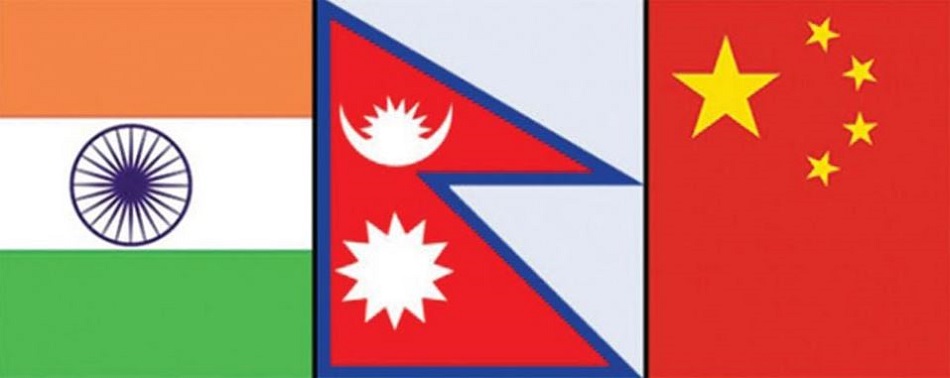

Babu Krishna Karki
The author is Brigadier General (Retired) of Nepal Army. Views are personal.news@myrepublica.com
Instead of whining about Mandarin maneuvers, India should focus on winning Nepal back and begin cementing brotherly bond through genuine efforts.
In principle and official pronouncements, India-Nepal relations have always an exemplary brotherly bond. The reality, however, is markedly different. It has remained acrimonious at the core but was always enveloped in a veneer of unparalleled amity. After the current territorial row that plunged bilateral relations to rock bottom, that long-held façade of a special bond has crumbled like a house of cards.
The current row between the two began after India published its new map in November, 2019. Nepal officially objected to the inclusion of the Kalapani area in India’s new map. India added insult to injury when Indian Defense Minister triumphantly inaugurated a road passing through the Lipu Lekh Pass to Kailash Mansarovar in China through a virtual session in May this year.
This time around, Nepal’s response to India’s transgression was swift. After India snubbed Nepal’s repeated calls for dialogue, Nepal was compelled to publish a new official map of its own that entailed all disputed territories. News reports were rife about India’s dogged attempt to disrupt and derail Nepal’s pursuit to get the map endorsed by both houses of Parliament. Despite India’s massive disruption efforts which included activating their so-called “assets,” Nepal still managed to bulldoze through. Both houses of Parliament unanimously endorsed the new map.
Perhaps for the first time in Nepal’s recent history, Nepal’s government gave a roaring response to India. It immediately deployed additional security forces along the India-Nepal borders. Nepal’s Prime Minister KP Oli issued stern warnings and admonished India multiple times. Nepal’s Foreign Minister Pradeep Gyawali in an interview with an Indian newspaper bluntly demanded the Indian forces leave the Kalapani area immediately. Nepal’s Defense Minister—Ishwar Pokhrel—upped the ante by asserting that Nepal was ready with its military to safeguard its territorial integrity.
Nepal’s chest-thumping certainly threw Delhi into a dizzying spin. In absence of a coherent response to Nepal’s almost fanatical posturing and to hide its repeated policy failures in Nepal, Delhi concocted a plausible narrative. India claimed China was winding up Nepal against India. To reinforce that narrative, even the Indian Army Chief publicly insinuated that Nepal was doing all of this “at the behest of someone else”—indirectly pointing fingers at China.
Since then, all others in India have been parroting about the Chinese hand in an attempt to depict Nepal as a puppet of China. By downplaying and disparaging Nepal’s attestations by labeling it as China instigated, India seems determined to deflect, dilute and ultimately discard Nepal’s genuine territorial concerns.
India’s China bashing press ravenously gorged this flavorful fodder and began spitting petulant vitriol with gusto. To smear Nepal and China, nothing was spared. Several outlets went to the extent of vilifying Chinese Ambassador to Nepal as femme fatale (bishkanya) and amorously linked her with Nepal’s Prime Minister. Salacious stories were cooked about Prime Minister Oli being hopelessly bewitched by her. To stoke anti-China sentiment, they even fabricated fanciful incidents about how China had illegally occupied Nepal’s northern territories.
India’s red herring approach, however, rings hollow and is counter-productive. Blaming China is self implicating and self defeating because it highlights China’s increased influence and leverage in Nepal. On the other hand, it exposed how India’s unbridled influence has precipitously dwindled in Nepal. It further ossified Nepal’s resolve and served to fuel more anti-India sentiment in Nepal.
Blaming China is also like the pot calling the kettle back. Griping about Chinese envoy’s frequent meetings with top political leaders and wielding enormous influence is petty and hypocritical. The Mandarins actually acquired this proficiency witnessing and learning from previous Indian envoys. India has a long history of meddling, maneuvering alliances, fomenting splits and dislodging governments in Nepal. Indian ambassadors in one way ruled the roost. There were times when Indian ambassadors sat in Nepal’s cabinet meetings and dictated the proceedings. Following 2006’s political change, Indian ambassadors were even branded as viceroys for their towering influence. They even had access to the bedrooms of several Nepali Prime Ministers. One Indian ambassador—Rakesh Sood—even had gall to call upon Prime Minister wearing sandals. He was later pelted with shoes and stones by the Maoists while attending a public function in Nepal.
Furthermore, India has frequently alleged Nepal of using ‘China card’ to balance off India. This impression is horrendously ill-informed. As Madhu Raman Acharya, Nepal’s former foreign secretary, sneeringly remarked: “The only China card Nepal has is the one we play the game of marriage with at our homes.” Even major powers and endowed countries are struggling to decipher the cryptic Chinese complexity. To fathom that Nepal has the dexterity to navigate through the Chinese complexity and manipulate a shrewd giant like China to dance to its tunes against India is a sheer epitome of petulance and a smug disdain for reality.
In fact, a recent public confession by a former Indian General JD Bakshi is instructive. He remorsefully admits that only India is to blame for the mess in Nepal and increased Mandarin maneuverings. He asserted, “India incubated the Maoist terrorists. They were used to uproot the only Hindu Monarchy in the world and now we are paying a heavy price of supporting these bloody communists.” He further added, “When it comes to fumbling in Nepal, we scored a suicide goal in our own net.”
General Bakshi’s assessment is accurate. China’s influence skyrocketed in Nepal only after the downfall of the monarchy in 2006. By abandoning its judicious twin pillar policy, India critically destabilized Nepal by opening the floodgates for the Mandarins, Missionaries and Muslims. India further pushed Nepal into to the Chinese corner after it imposed an inhumane economic blockade in 2015. By vindictively choking Nepal during its most difficult moment, India left Nepal with no alternative but to reach out to the Chinese for support.
Moving forward, India urgently needs to realize that Nepal has remained its most vital partner because its contribution to India’s security and economy is unrivaled. In fact, Indians need to fact-check Nepal’s unbeatable role rather than be blindly swayed by the skewed narratives propagated by its perfidious press. A land-locked Nepal which relies heavily upon India for its supplies daring to claim the territory of a nuclear power like India is simply unthinkable and preposterous. It even sounds perversely counterintuitive when 70,000 Nepali men are serving in various Indian Armed forces and are ready to lay down their lives to protect every inch of Indian territory. Therefore, instead of wasting valuable time and energy whining about Mandarin maneuvers, it would be in India’s best security interest to focus on winning Nepal back and begin cementing brotherly bond through genuine efforts.
The author is Brigadier General (Retired) of Nepal Army. Views are personal.
You May Like This
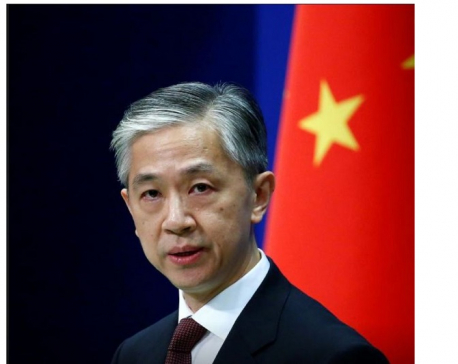
China says report that it seized territory from Nepal is unfounded
BEIJING, Nov 3: China’s foreign ministry spokesman Wang Wenbin dismissed a media report about it seizing territory from Nepal as... Read More...
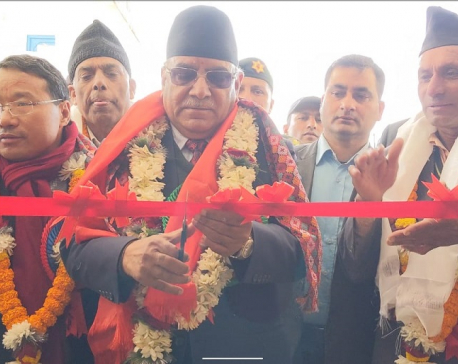
Former PM Dahal inaugurates India-supported school building in Nuwakot
KATHMANDU, Feb 10: A newly-built building of Aiselubhume Secondary School at Kispang in Nuwakot district was inaugurated on Monday. ... Read More...
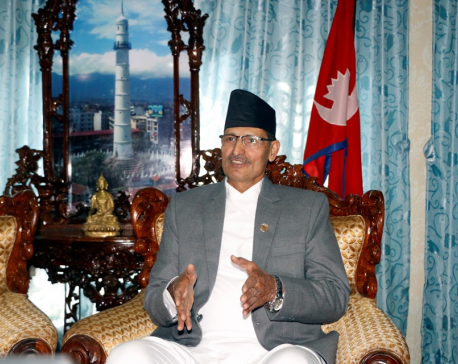
Acting Indian ambassador congratulates speaker Sapkota
KATHMANDU, Jan 29: Charge d’ Affaires at the Indian Embassy in Nepal Ajaya Kumar called on the speaker of the House... Read More...
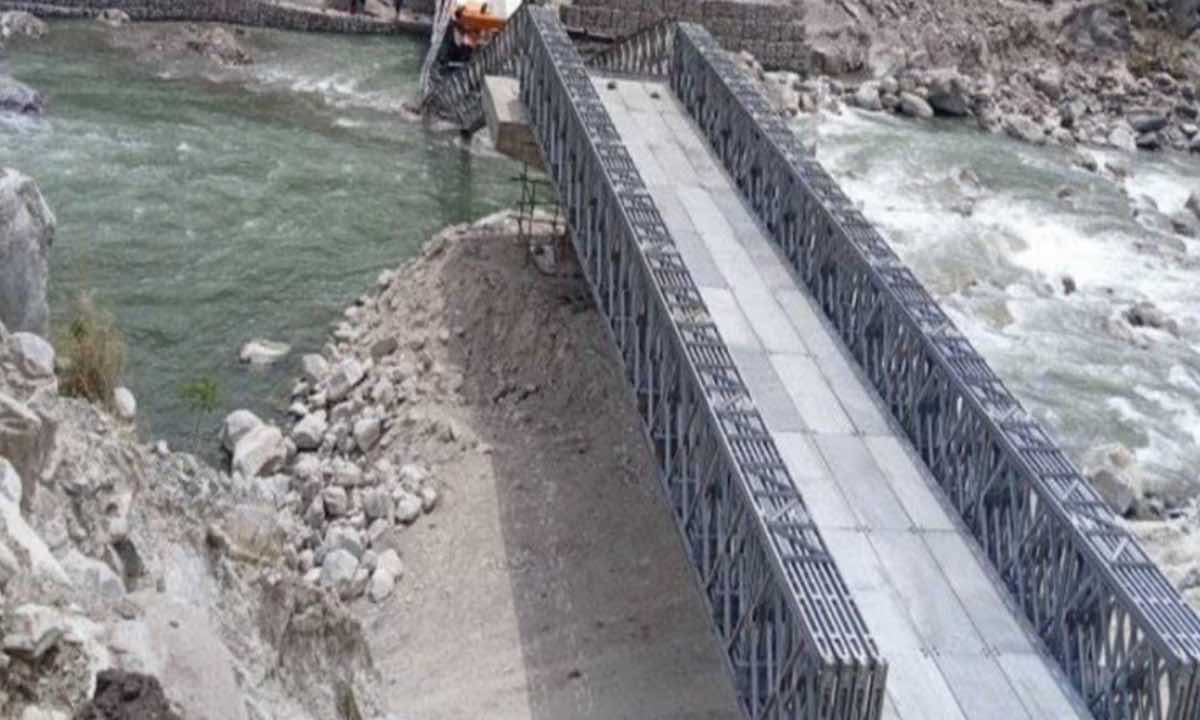

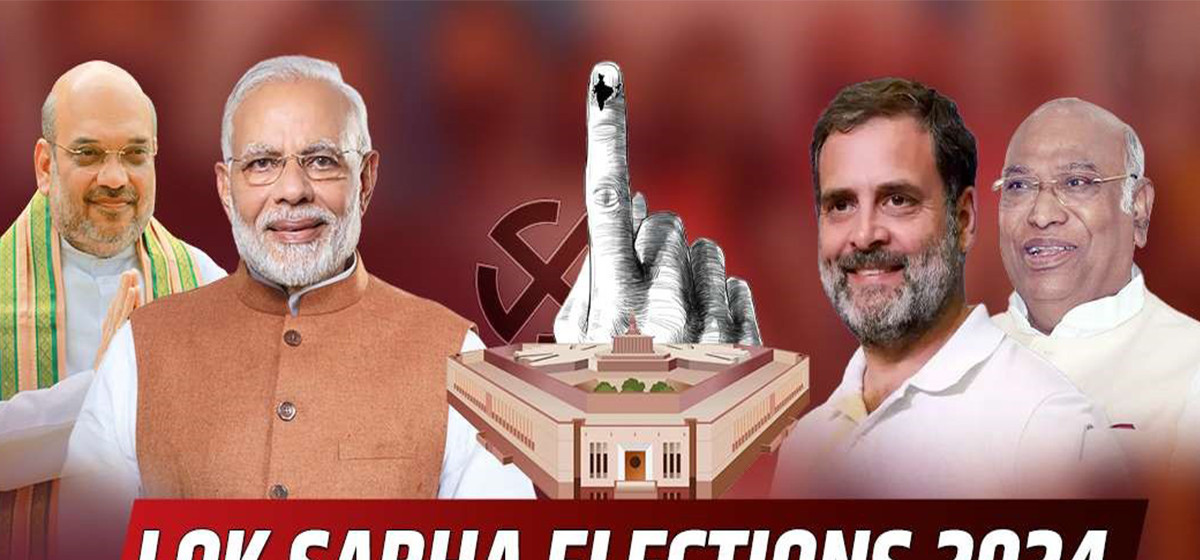


Just In
- Construction of bailey bridge over Bheri river along Bheri corridor reaches final stage
- Taylor Swift releases ‘The Tortured Poets Department’
- India starts voting in the world’s largest election as Modi seeks a third term as prime minister
- EC seeks cooperation for free and fair by-election
- Bus carrying wedding procession attendees meets with accident in Sindhupalchowk claiming three live
- CPN (Unified Socialist) to hold its Central Committee meeting on May 10-11
- Over 16,000 paragliding flights conducted in one year in Pokhara
- MoPIT prepares draft of National Road Safety Act, proposes rescue within an hour of an accident











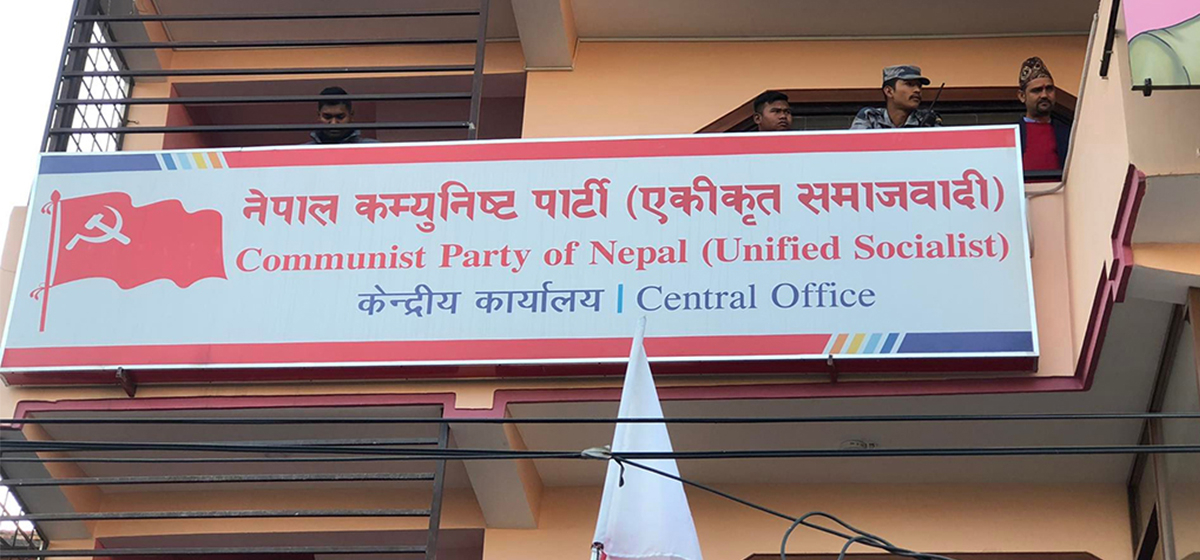
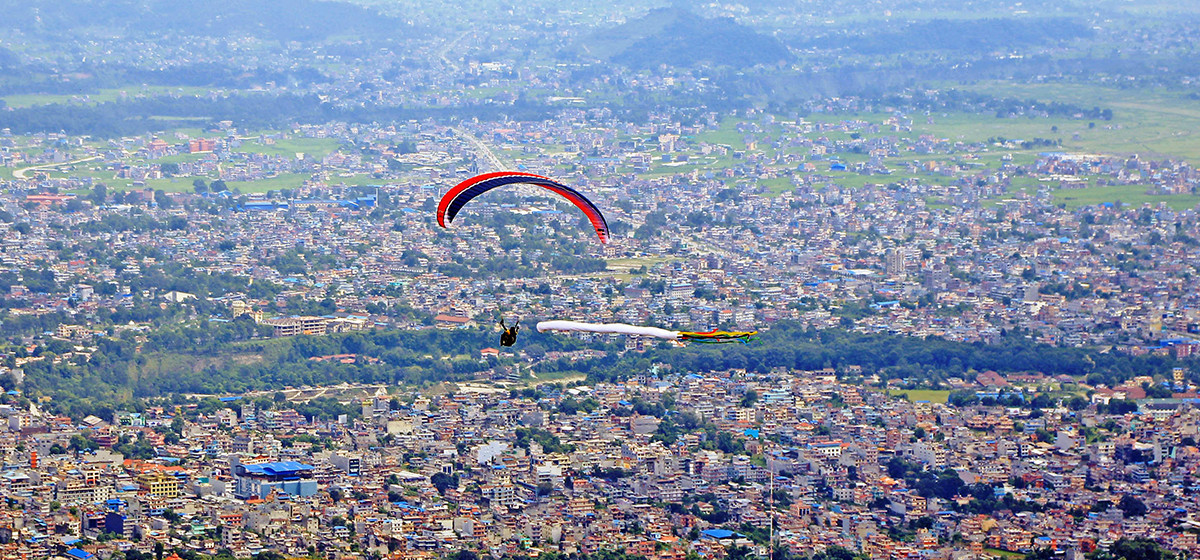
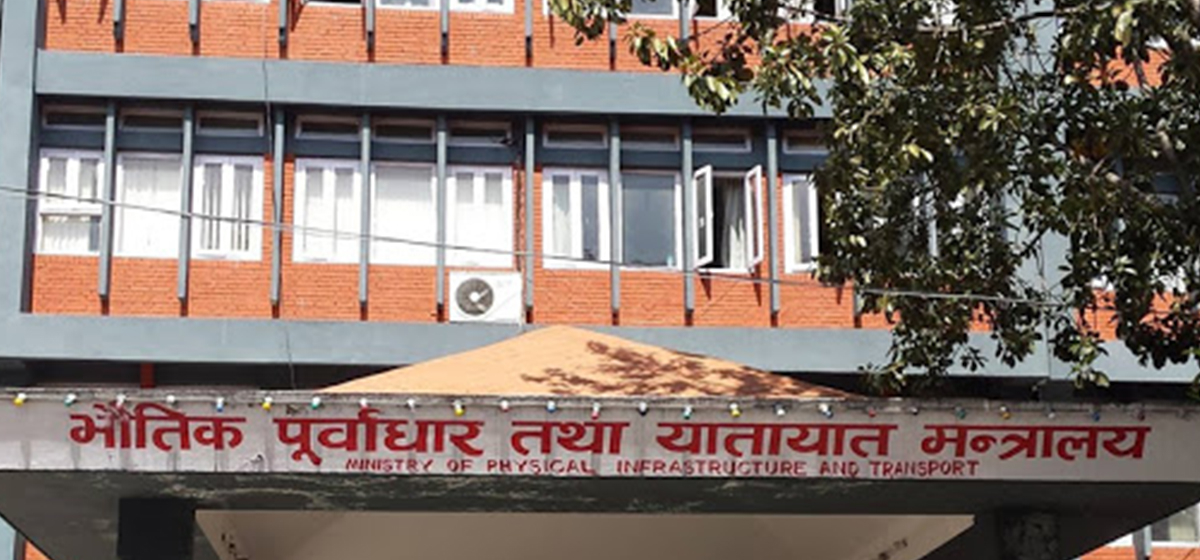
Leave A Comment